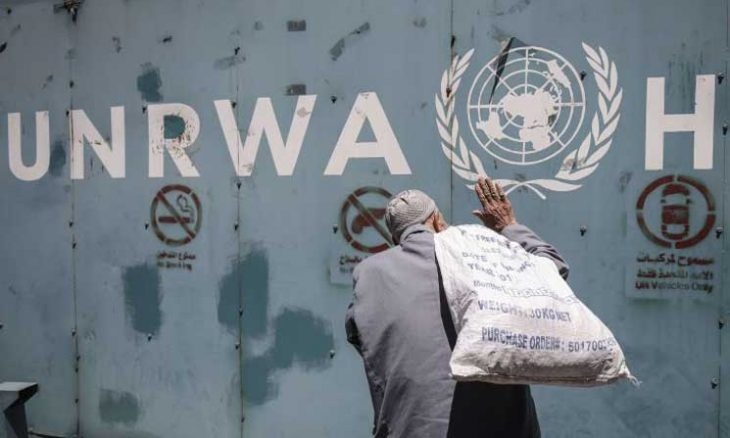By Francesca Albanese
The recent international conference on UNRWA, held in Brussels on 16 November 2021 and co-chaired by Jordan and Sweden, has received significant coverage in the media, including in the Arab region. In the Agency’s experience, international conferences have generally been an opportunity to assess, take stock and overcome UNRWA’s global challenges in a strategic fashion; resources were then to be aligned accordingly. This year’s conference (originally announced last year and then postponed various times) could have been a highly strategic one. One simple reason is that UNRWA’s existence, as well as the situation of the Palestinian refugees and the broader question of Palestine, has reached a highly critical point. Unfortunately, UNRWA missed an opportunity that presents itself only once in a decade or so to have a meaningful reflection on its mandate and strategic direction such as the 2004 Geneva Conference. Instead, contrary to expectations or necessity, the Conference was essentially another pledging conference to mobilize funds for UNRWA to overcome its recurrent financial crisis (UNRWA had about $100 million budget deficit in 2021) and move forward toward ‘more predictable and sustainable funding’ for the coming years.
The Conference concentrated on making sure that UNRWA’s finances meet ends. It did not offer space for exploring either UNRWA’s vision for the future or proper political contextual analysis and forward-looking strategy. The conference confirmed that donors continue to consider UNRWA as a tool to manage the refugee question and related emergencies rather than engaging in a political discourse regarding a bolder approach to protection and just and durable solutions. Furthermore, not once did the settler-colonial regime that the State of Israel is imposing in occupied Palestine come into question. In a nutshell, it was business as usual.
The Conference began with a video (made by UNRWA) of children in Gaza advocating for education amidst the rubble. UNRWA Commissioner-General Philippe Lazzarini then elaborated on ‘UNRWA’s vision and strategy. He emphasized UNRWA’s commitment to education, modernization, and digitalization, as well as UNRWA’s critical financial position. Quite poignantly, he stressed the need for third parties not to invoke breaches of neutrality or alleged politicization of Palestine refugees to weaken the Agency. UNRWA’s Deputy Commissioner-General reinforced Lazzarini’s words by stressing UNRWA’s role as a necessary humanitarian actor in a difficult (regional) humanitarian context.
In essence, the Conference was, from beginning to end, about ensuring support for UNRWA’s core operating costs (including the $100 million needed for the remainder of 2021). The need for predictable funding through multi-year agreements was largely acknowledged, but vagueness in pledges remains an issue. In total, member states announced pledges for approximately $38 million in new contributions for the remainder of 2021. UNRWA still needs approximately $60 million to meet its financial obligations for the remainder of this year. Therefore, from this perspective, the conference was not the success one could have hoped for.
There was a good attendance by hosts and donors from around the world; however, influential actors such as China and Saudi Arabia were absent from the conference. Statements from most attendees tended to be repetitive, with a very limited focus on the rights of the refugees beyond humanitarian emergencies (although a few states did mention the right of return). The need for ‘predictable funding/multi-year agreements’ was acknowledged, but the emphasis was largely on protecting UNRWA as a ‘stabilizing factor in the region’ and as a tool to continue to provide ‘humanitarian support’ to the refugees. The underlying message seemed to be that donors’ support for UNRWA essentially depends on the agency staying the course and not ‘rocking the boat’. EU commitment and others were quite strong on burden-sharing and reforms, but once again, the EU Representative and Member states emphasized the need to support UNRWA as part of their support to the two-state solution. The US affirmation of renewed support to UNRWA was clear, but UNRWA’s financial crisis was attributed to UNRWA’s ‘unsustainable business model’ as if UNRWA were a regular business and not the UN Agency dealing with the largest and most protracted refugee crisis since the Second World War.
As I have argued elsewhere, while UNRWA’s modus operandi is clearly unsustainable, it is due to the lack of political resolve of the root causes of the Palestinian refugee question, pending which the number of the refugees continues to grow and a large part of the areas in which UNRWA operates is trapped into a deep crisis. This could only change if someone dares to call the situation what it is: an unsustainable economic status and a man-made humanitarian disaster that renders it nearly impossible to protect the refugees and the Palestinians under occupation. This is all occurring as Israel advances its ‘colonization’ plans — committing serious human rights violations and keeping captive millions of civilians — whilst others, such as those who attempt to resist and refugees in host countries have become almost completely politically invisible and are increasingly the target of an explicit law-fare. The current reality calls for a serious, future-oriented discussion regarding Palestinian refugees and UNRWA.
A certainly positive development at the Conference is that a number of civil society organizations were invited to ‘listen in’ for the first time, namely Arab Renaissance for Democracy and Development (ARDD), Al-Shabaka – The Palestinian Policy Network, BADIL, MAS (Palestine Economic Policy Research Institute), Pal-Think, Welfare Association (working with UNRWA in oPt and Lebanon); and the Palestinian NGO Network of 302 Palestinians NGOs. While they could not intervene, this was an important development that ARDD, in particular, has long advocated for. Hopefully at seminal events, in the future, relevant NGOs working with Palestinian refugees will also be given a voice.


